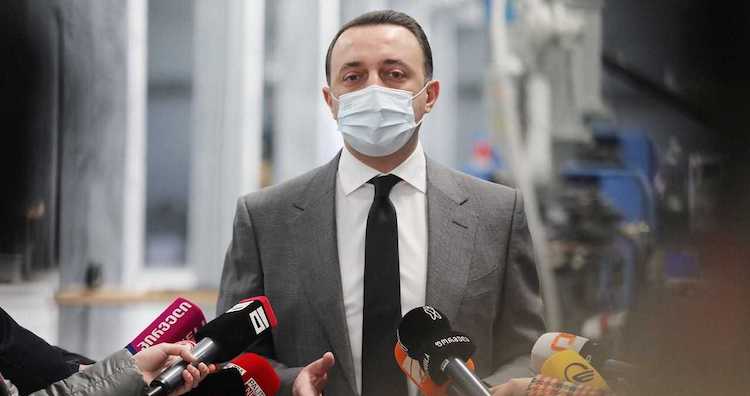PM Garibashvili: inflation will begin to “decline significantly” from March to April

The government head also pointed out the recent change in pension-backed loan payments, the upper limit of which has been set at 26 percent, referencing the “80-100 percent” rate for the loans under the previous government in contrast. Photo: Government of Georgia.
Georgian experts forecast the inflation rate in Georgia to begin to “decline significantly” from March to April this year, prime minister of the country said on Wednesday, adding a reduction in inflation had already been observed in the final months of 2021.
In an interview with Rustavi 2 channel, Garibashvili elaborated on causes of the high inflation rate in the country, naming the global pandemic as the main reason for the increase in prices, and highlighting the average inflation rate for the past year was 9.6 percent.
In recent months, there has been a slowdown in the growth rate of prices compared to the previous month, which is very optimistic and looks very good,” he said.
The government head also cited the Food and Agriculture Organization in pointing out a 23.5 percent worldwide increase in food prices by December 2021.
Garibashvili also mentioned past data in Georgia, pointing out the annual inflation rate in July 2006 had been 14.5 percent and in 2011 the figure had stood at 14.3 percent - adding the statistics showed the 2021 rate had not been an all-time high.
The Consumer Price Index in Georgia increased by 1.1 percent in January 2022 compared to the previous month, while the annual inflation rate stood at 13.9 percent.
The Georgian official also noted the country had a “serious growth” in the economy with a 10.6 percent increase, calling it an “unprecedented” not only in the region but in Europe as well, saying the figure placed the country “second in Europe after Ireland.”
The government head also pointed out the recent change in pension-backed loan payments, the upper limit of which has been set at 26 percent, referencing the “80-100 percent” rate for the loans under the previous government in contrast.
In his interview, Garibashvili also talked about the increased budget of the health ministry, pointing out in 2012 it had amounted to 450 million GEL ($146 million/€130 million), while a decade later it totalled 2.4 billion GEL ($776 million/€631 million).
He also made comparisons between the 38 percent of the population covered by the health insurance programme in 2012 and the percentage rising to 90 this year.
 Tweet
Tweet  Share
Share